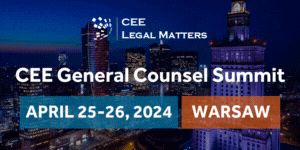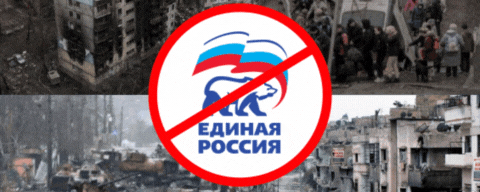
How сan Reparations be Obtained and russia’s Leadership be Held Accountable without their Consent?
These and other issues were discussed at the roundtable taskforce meeting at a Tribunal for Russia’s Crime of Aggression, which was held at the Queen Mary University of London on April 12-13.
The round table was organized jointly by the Queen Mary University of London and the Institute for Conflict Studies and Analysis of Russia (ICARUS).
Prominent representatives from the international legal community participated in the round table, including:
- Loukas Mistelis, FCIArb, Advocate (Athens Bar), Clive M Schmitthoff Professor of Transnational Commercial Law and Arbitration, The Queen Mary University of London, UK;
- David Tolbert, professor at Georgetown University, former President of the International Center for Transitional Justice, Washington DC, the United States;
- Arthur Traldi, International Investigation and Dispute Resolution Attorney, Senior Fellow Washington College of Law, Washington DC, the United States;
- Eric Z. Chang, International Attorney, U.S. JAG Corps Officer, Promoting DEI and Mentorship, Los Angeles, the United States.
The round table was held for two days and included informal meetings, which I was fortunate to attend.
The representatives from various countries discussed the collection of evidence related to Russian war crimes committed during the conflict in Ukraine. The main topics of discussion included the establishment of an international court to hold Russian perpetrators accountable and the restitution of damages caused by these crimes.
Collection of Evidence
In regard to collecting evidence, Arthur Traldi emphasized that we are close to establishing a brand-new tribunal with its unique set of procedures and rules for admissible evidence.
Various forms of evidence may be deemed appropriate, including physical evidence, witness testimony, and documentary films, as was the case in the Nuremberg Tribunal.
Armenak Ohanesian, Head of Legal Studies at the Institute for Conflict Studies and Analysis of Russia (ICARUS), highlighted the issue of coordination when collecting evidence.
During the round table discussions, participants highlighted an issue regarding the challenges faced by Ukraine in effectively collecting and storing evidence of environmental damage. They noted that there is a lack of effective means to collect such evidence, let alone store it properly.
The discussion about evidence led to the conclusion that there were several priorities:
- creation of an interagency special force, capable of the evidence collection directly (and literally) at the crime scene, which, in fact, is the frontline;
- elaboration of a unified witness and/or witness-victim protection mechanism, as the eyewitness testimony has basically always been the core of any war crime prosecution;
- the development of a secure system of evidence storage, especially digital evidence, which, in turn, includes cybersecurity matters — both in the engineering realm as well as regarding the legal framework of operation of the digital evidence storage platform.
Model of a Future Tribunal
Interesting discussions were held regarding the model of a future tribunal. Some participants considered the creation of a “hybrid tribunal” to be a viable option, which has been endorsed by the US State Department. This type of tribunal would be internationalized, but based on the legal system of Ukraine.
However, I, together with a number of other participants in the round table, disagree with this view, as it has a number of drawbacks:
- It goes against Article 125 of the Constitution of Ukraine, which prohibits the establishment of extraordinary and special courts. Any amendments to the Constitution are only possible in the event of the termination of martial law.
- There are doubts about the ability of a “hybrid tribunal” to overcome the immunity of senior officials of the Russian Federation.
Therefore, the creation of such a tribunal would only be possible after the end of the war, and even then, there are concerns about its international legitimacy.
On the other hand, an International Claims Commission, established and based on a UN General Assembly Resolution and subsequent multilateral international treaties, would not have these drawbacks.
The UNGA may act in cases of threat to peace, breaches of peace or acts of aggression if the Security Council cannot act because of the position of one of the permanent members who votes against it.
In such cases, in accordance with its Uniting for Peace Resolution of November Third, 1950, the UN General Assembly may immediately consider the matter and recommend to its Members collective measures to maintain or restore international peace and security.
However, even an International Claims Commission established on the basis of an international treaty between Ukraine’s allies (the so-called judicial Ramstein), without the UN General Assembly’s Resolution, will be more effective in terms of recovery of reparations from Russia, because an international treaty may also require the establishment of a compensation fund.
Restitution Of Damages
The participants of the round table came to a consensus that, as of now, there are no efficient mechanisms in place for the recovery of compensation from the Russian Federation.
According to the majority of participants, the main barrier to achieving an effective recovery is the absence of a compensation fund.
Consistent with previous statements, including those made by the President of Ukraine, it is recommended that the proposed fund be created using assets belonging to the Russian Federation, as well as assets owned by Russian companies and citizens who are under sanctions and are located within the jurisdiction of partner countries of Ukraine.
Canada is currently the only country that has adopted the legislative changes necessary to transfer seized Russian assets to Ukraine.
My Personal Insights
- The tribunal to address Russia’s Crime of Aggression is expected to adopt a “hybrid tribunal” model – that is, the tribunal will be established once martial law has ended and the necessary amendments to the Ukrainian Constitution have been introduced;
- The best form of justice to recover damages from Russian aggression, in my opinion, is an International Claims Commission established on the basis of an international treaty between Ukraine’s allies. An international treaty may also require the establishment of a compensation fund.
The Results
The round table taskforce meeting at a Tribunal for Russia’s Crime of Aggression was the first event organized by ICARUS abroad. But according to its results, several British scientists have agreed to collaborate on developing recommendations for the Ukrainian state authorities. These recommendations will focus on the collection of evidence and mechanisms for the recovery of reparations.
It was also agreed to continue the discussion at the event that ICARUS is planning to hold in Ukraine this summer.
Oleksander Boyaryntsev, associate of Legal Studies at the Institute for Conflict Studies and Analysis of Russia (ICARUS), associate partner at MK Legal Service.
Posted in Recovery Talks






